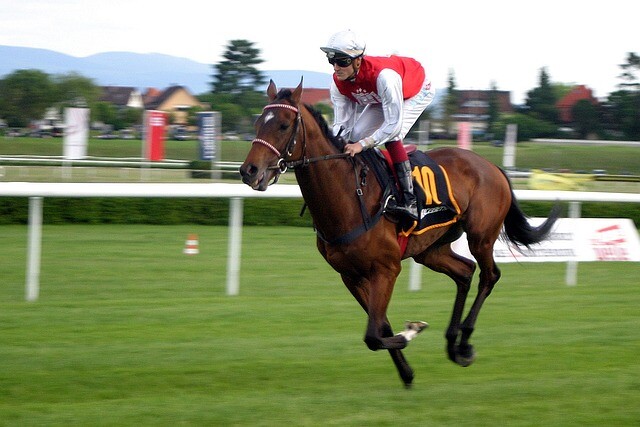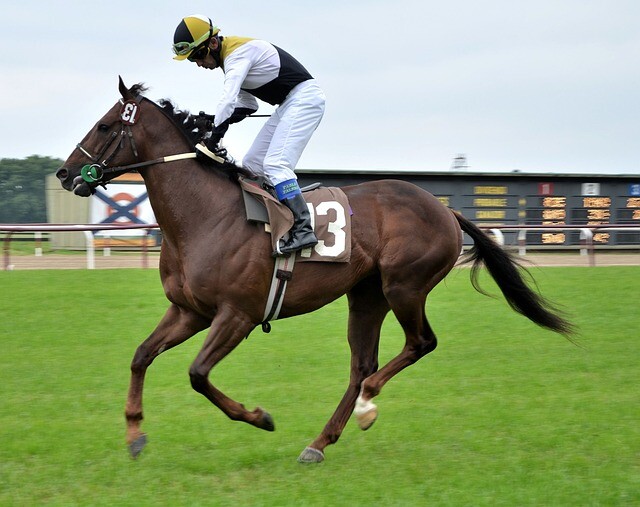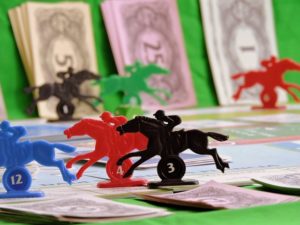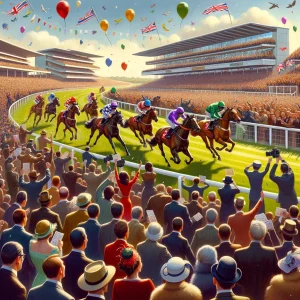The Most Memorable Grand National Winner Interviews
 The Grand National is not just a race—it’s a theatre of human drama, emotion, and triumph. Over the years, the event has given us unforgettable moments, not just on the track but also in the aftermath, when winners step into the spotlight to reflect on what they’ve achieved. Here are some of the most memorable post-race interviews that captured the heart and soul of the world’s most famous steeplechase.
The Grand National is not just a race—it’s a theatre of human drama, emotion, and triumph. Over the years, the event has given us unforgettable moments, not just on the track but also in the aftermath, when winners step into the spotlight to reflect on what they’ve achieved. Here are some of the most memorable post-race interviews that captured the heart and soul of the world’s most famous steeplechase.
Davy Russell and Tiger Roll – A Dreamlike Double (2018 & 2019)
Few horses have captured the public’s imagination quite like Tiger Roll, and fewer jockeys have shared the emotional clarity of Davy Russell. After winning back-to-back Nationals in 2018 and 2019, Russell’s post-race interviews were full of awe and emotion.
Describing the moment as “a haze… dreamland,” Russell conveyed just how surreal and overwhelming the victory was. He recounted the near-misses, the mental focus required, and the sheer disbelief upon crossing the finish line first. His reflections—later explored in his autobiography—highlighted the years of perseverance that led to those euphoric moments.
AP McCoy and Don’t Push It – The Weight of Expectation (2010)
For years, Tony “AP” McCoy had been the face of jump racing, yet the Grand National victory eluded him—until 2010. Riding Don’t Push It, McCoy finally conquered the course on his 15th attempt. The raw emotion in his post-race interview was palpable.
“If you get enough goes at something and you keep going, once you’re in there, you’ve always got a chance,” he said, clearly moved. McCoy also paid tribute to owner JP McManus, calling him “the best supporter this game has ever had and ever will have.” It was a cathartic moment for McCoy and a victory that resonated with racing fans everywhere.
Jenny Pitman and Corbiere – Breaking Barriers (1983)
In 1983, Jenny Pitman became the first woman to train a Grand National winner, smashing a major glass ceiling with Corbiere. Her post-race interviews offered more than just celebration—they were powerful affirmations of female ambition in a male-dominated sport.
Pitman’s reflections on the journey, the training process, and her horse’s character made it clear that her place in history was well earned. Her success paved the way for future generations of women in racing, both in the saddle and behind the scenes.
John Buckingham and Foinavon – The 100/1 Miracle (1967)
In one of the most bizarre and legendary moments in Grand National history, Foinavon— at Aintree Grand National odds of 100/1—avoided a massive pile-up at the 23rd fence to take a surprise win. Jockey John Buckingham’s interview after the race perfectly captured the bewilderment of the moment.
“Everything seemed to stop in front of me,” he said, recalling how he navigated through the chaos while others fell. The underdog story and Buckingham’s stunned reaction became an iconic part of racing folklore.
Lucinda Russell and One For Arthur – Scotland’s Star (2017)
In 2017, Lucinda Russell became just the fourth female trainer to win the Grand National, with One For Arthur bringing victory back to Scotland for the first time in nearly four decades. Her interview, alongside partner and former champion jockey Peter Scudamore, radiated pride and teamwork.
Russell spoke of her admiration for the horse’s heart and bravery, while Scudamore reflected on the behind-the-scenes dedication that made the win possible. Their combined emotion made the victory not only a personal triumph but a proud moment for Scottish racing.
Conclusion
The Grand National is defined not just by the horses and the fences, but by the people behind them—their hopes, struggles, and ultimate glory. These interviews have become as legendary as the wins themselves, capturing the humanity behind the spectacle. Each story serves as a reminder: at the Grand National, every winner has a journey worth telling.
 Being one of the most prestigious and well-known events throughout the horse racing calendar, The Grand National garners lots of attention across the UK and the entire world! Typically taking place in early April at the Aintree Racecourse, The Grand National is famous for many reasons, and the event features some of the most famous horses in the business. It is one of the most exciting events in the National Hunt season! Whether you are someone who enjoys horse racing for the spectacle or you like to take advantage of
Being one of the most prestigious and well-known events throughout the horse racing calendar, The Grand National garners lots of attention across the UK and the entire world! Typically taking place in early April at the Aintree Racecourse, The Grand National is famous for many reasons, and the event features some of the most famous horses in the business. It is one of the most exciting events in the National Hunt season! Whether you are someone who enjoys horse racing for the spectacle or you like to take advantage of  Notwithstanding the change of date in 2022, made to accommodate Easter, on April 17, the Scottish Grand National, run over 3 miles, 7 furlongs and 176 yards at Ayr, is traditionally staged a week or two after the Grand National at Aintree. Consequently, few horses attempt the Aintree-Ayr double and those that do have precious little recovery time between the two races.
Notwithstanding the change of date in 2022, made to accommodate Easter, on April 17, the Scottish Grand National, run over 3 miles, 7 furlongs and 176 yards at Ayr, is traditionally staged a week or two after the Grand National at Aintree. Consequently, few horses attempt the Aintree-Ayr double and those that do have precious little recovery time between the two races. The short answer is yes, he did. Nowadays, Michael Anthony ‘Mick’ Fitzgerald is best known as a presenter on ITV Racing but, between 1993 and the end of his riding career in 2008, he was stable jockey to Nicky Henderson. Fitzgerald broke his neck in a fall at Market Rasen in 2005 and, having returned to race riding, damaged his spinal cord in another in the Grand National in 2008, which ultimately brought an end to his career four months later. Nevertheless, he was one of the most successful jump jockeys of all time, with 1,280 winners to his name, more than half of which were for Henderson.
The short answer is yes, he did. Nowadays, Michael Anthony ‘Mick’ Fitzgerald is best known as a presenter on ITV Racing but, between 1993 and the end of his riding career in 2008, he was stable jockey to Nicky Henderson. Fitzgerald broke his neck in a fall at Market Rasen in 2005 and, having returned to race riding, damaged his spinal cord in another in the Grand National in 2008, which ultimately brought an end to his career four months later. Nevertheless, he was one of the most successful jump jockeys of all time, with 1,280 winners to his name, more than half of which were for Henderson.